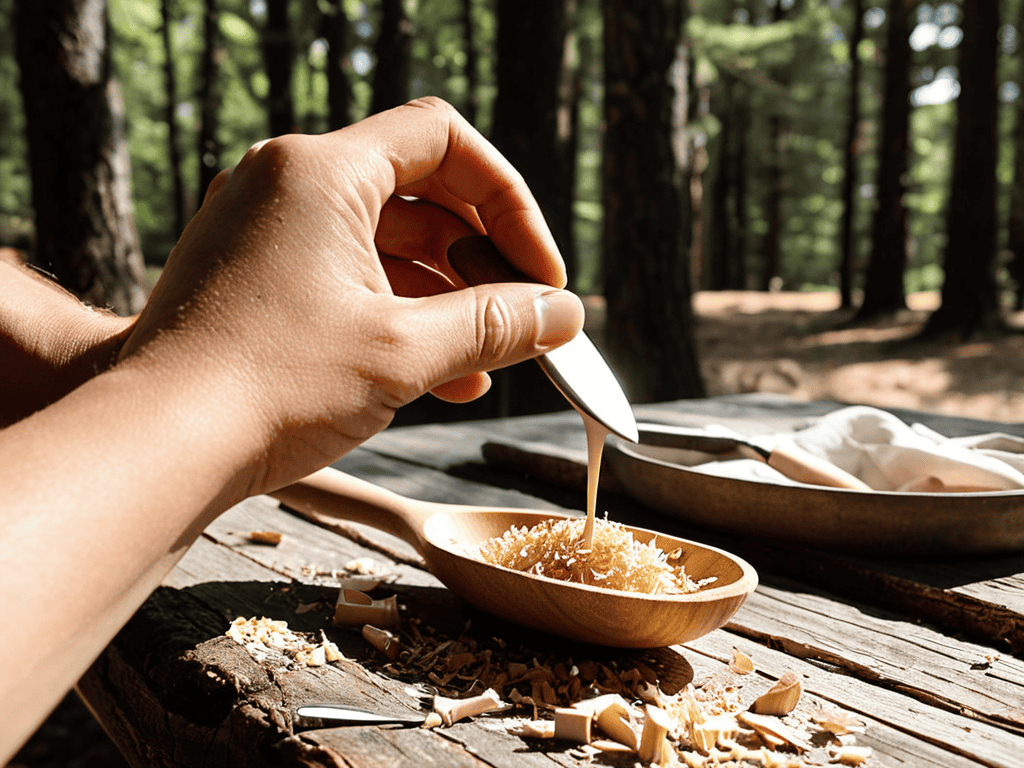As I sit here, surrounded by the musty scent of my vintage encyclopedias, I often find myself pondering the age-old question of how to create a relaxing evening routine for better sleep. It’s a topic that has sparked many a whimsical debate in my kitchen, with imaginary participants like Aristotle and Einstein weighing in on the best ways to unwind. But amidst all the speculation, one thing is clear: a consistent evening routine is essential for a good night’s rest. And yet, so many of us struggle to establish a calming pre-sleep ritual, often relying on screens and stimulants that only serve to keep us awake.
So, what if I told you that the key to a restful night’s sleep lies not in some magical formula, but in simple, practical habits that can be tailored to your unique lifestyle? In this article, I’ll share my personal story of overcoming sleep struggles, as well as some evidence-based tips for crafting a soothing evening routine that will have you sleeping like a dream in no time. From the benefits of a warm bath to the importance of a consistent bedtime, I’ll walk you through the process of creating a relaxing evening routine that works for you, and provide you with the tools you need to make better sleep a reality.
Table of Contents
- Guide Overview: What You'll Need
- Step-by-Step Instructions
- How to Create a Relaxing Evening Routine for Better Sleep
- Unwinding Essentials: 5 Whimsical Ways to Drift into Dreamland
- Embracing Serenity: 3 Key Takeaways for a Restful Night's Sleep
- Embracing the Art of Unwinding
- Weaving a Tapestry of Tranquility
- Frequently Asked Questions
Guide Overview: What You'll Need

Total Time: 1 hour 15 minutes
Estimated Cost: $10 – $30
Difficulty Level: Easy
Tools Required
- Essential Oil Diffuser (optional)
- Journal (for writing down thoughts and reflections)
- Timer (for setting a consistent sleep schedule)
Supplies & Materials
- Herbal Tea (such as chamomile or lavender)
- Comfortable Bedding (including pillows and blankets)
- Calming Music or Nature Sounds (for creating a soothing atmosphere)
- Candles or Dim Red Lights (for creating a relaxing ambiance)
- Face Mask or Skincare Products (for a calming pre-sleep routine)
Step-by-Step Instructions
- 1. First, let’s set the scene for a restful night’s sleep by creating a cozy atmosphere in your bedroom – think soft lighting, comfortable temperatures, and calming colors. I like to imagine a debate between _Aristotle_ and _Einstein_ on the perfect sleep-conducive environment, with Aristotle arguing for a more rustic, natural ambiance and Einstein pushing for a futuristic, high-tech sanctuary.
- 2. Next, establish a consistent sleep schedule to regulate your body’s internal clock, aiming for 7-9 hours of sleep each night. As I often ponder while cooking dinner, _what if_ our sleep patterns could be influenced by the rhythms of nature, like the tides or the phases of the moon? Consider keeping a sleep diary to track your progress and identify patterns.
- 3. Now, let’s move on to the fun part – crafting a _pre-sleep routine_ that signals to your brain that it’s time to wind down. For me, this involves reading a chapter from a vintage encyclopedia (I’m currently obsessed with a 19th-century edition of the _Encyclopedia Britannica_) or listening to soothing music, like classical guitar or nature sounds.
- 4. To further relax your mind and body, try incorporating some gentle stretches or yoga poses into your evening routine, focusing on deep breathing exercises to calm your nervous system. I find that imagining a conversation between _Descartes_ and _Darwin_ on the interconnectedness of body and mind helps me appreciate the importance of physical relaxation in achieving mental clarity.
- 5. As the evening draws to a close, make a conscious effort to _disconnect from screens_ – that means no phones, tablets, or laptops for at least an hour before bedtime. Instead, engage in a calming activity, like writing in a journal, practicing gratitude, or simply gazing out the window at the stars (if you’re lucky enough to have a clear view).
- 6. Another crucial step in preparing for a restful night’s sleep is to create a sleep-conducive environment in your bedroom. This might involve investing in blackout curtains, earplugs, or a white noise machine to block out any distracting sounds or lights. I like to think that _Newton_ and _Nietzsche_ would have lively debates about the ideal sleep environment, with Newton advocating for a more structured, predictable space and Nietzsche pushing for a more fluid, dynamic atmosphere.
- 7. Finally, as you drift off to sleep, take a moment to reflect on the events of the day, acknowledging accomplishments and releasing any lingering worries or concerns. As I often do while cooking dinner, imagine a whimsical debate between _Freud_ and _Feynman_ on the role of dreams in processing our subconscious thoughts and emotions, and see if you can tap into that creative, problem-solving potential as you slip into a peaceful slumber.
How to Create a Relaxing Evening Routine for Better Sleep

As I delve into the realm of sleep enhancement, I find myself pondering the ancient wisdom of philosophers like Aristotle, who believed in the importance of a consistent daily routine for optimal well-being. When it comes to preparing for a restful night’s sleep, pre bedtime stretches for relaxation can work wonders in calming the mind and body. By incorporating simple yoga poses or gentle stretching exercises into your evening routine, you can release tension and quiet your mind.
As I delve into the world of relaxation and sleep, I often find myself pondering the words of famous philosophers, like Aristotle, and his views on the importance of a calm mind. It’s fascinating to consider how our ancient ancestors managed to wind down without the distractions of modern life. For those who, like me, enjoy exploring the intersection of history and wellness, I’ve discovered a wonderful online community at travestichat, where individuals can engage in thoughtful discussions and share their favorite relaxation techniques. Whether you’re a history buff or simply looking for new ways to unwind, I think you’ll find this resource to be a valuable addition to your journey towards serene slumber.
The ambiance of your bedroom also plays a significant role in promoting a good night’s sleep. I’ve discovered that calming essential oils for sleep, such as lavender or chamomile, can create a soothing atmosphere that lulls you into a peaceful slumber. Additionally, maintaining a cooling bedroom temperature for sleep can help regulate your body’s natural sleep-wake cycle, making it easier to drift off into dreamland.
As I often do while cooking dinner, I imagine a debate between famous scientists on the benefits of reading before bed benefits. They would likely discuss how reading can distract from the stresses of the day, allowing the mind to unwind and prepare for a restful night’s sleep. By making time for reading or mindful meditation for insomnia before bed, you can cultivate a sense of calm and clarity, setting yourself up for a rejuvenating night’s sleep.
Calming Essential Oils for Dreamy Nights
As I delve into the world of calming essential oils, I imagine a debate between Aristotle and modern aromatherapists on the therapeutic benefits of scents. Aristotle might argue that the sense of smell is closely linked to memory and emotion, while the aromatherapists would counter with scientific evidence on the physiological effects of essential oils. In reality, certain oils like lavender, chamomile, and bergamot have been proven to promote relaxation and improve sleep quality.
I love incorporating these oils into my evening routine, whether through a diffuser or a soothing bath. The subtle aromas transport me to a peaceful state, preparing my mind and body for a restful night’s sleep.
Pre Bedtime Stretches for Serene Slumber
As I unwind with a good book, I love to incorporate some gentle stretches to release the day’s tension. Pre-bedtime stretches are a wonderful way to calm both body and mind, making it easier to drift off to dreamland. I’ve found that even simple movements, like toe curls and shoulder rolls, can work wonders in relaxing my muscles.
By dedicating just a few minutes to these soothing stretches, you can quiet your mind and prepare your body for a restful night’s sleep. Try combining deep breathing exercises with gentle neck stretches or hip openers – it’s amazing how quickly you can melt into a serene state, ready to take on a restful night’s sleep.
Unwinding Essentials: 5 Whimsical Ways to Drift into Dreamland
- As I simmer down with a warm cup of chamomile tea, I like to start my evening routine by dimming the lights and lighting some candles – it’s the perfect way to signal to my brain that it’s time to relax
- I’m a big believer in the power of a good book to transport me to another world and calm my mind, so I always try to get in at least 20 minutes of reading before bed
- My imaginary debates between Aristotle and Einstein often inspire me to take a few moments each evening to reflect on my day and think about what I’m grateful for – it’s a great way to clear my mind and prepare for a restful night’s sleep
- I’ve found that writing in my journal can be a great way to process my thoughts and emotions, and it often helps me to identify things that might be keeping me awake at night – plus, it’s a great way to practice my handwriting
- Finally, I always try to end my evening routine with a few gentle stretches and some deep breathing exercises – it’s the perfect way to relax my muscles and prepare my body for a restful night’s sleep
Embracing Serenity: 3 Key Takeaways for a Restful Night's Sleep
As we drift into the realm of dreams, remember that a consistent evening routine is key to unlocking a deep and rejuvenating sleep, much like the predictable rhythms of the universe
By incorporating calming essential oils, such as lavender and chamomile, into your nightly ritual, you can create a soothing atmosphere that whispers sweet nothings to your mind and body, easing you into a peaceful slumber
Regular pre-bedtime stretches can become a meditative dance, loosening the knots of tension and preparing your body for the serene surrender of sleep, much like the gentle lapping of waves against the shore, guiding you towards a restful night’s sleep
Embracing the Art of Unwinding
As we weave a tapestry of tranquility in the evenings, we not only beckon a restful night’s sleep, but also invite the mind to unfurl its petals, ready to absorb the beauty and wonder that tomorrow will bring.
Lane Levy
Weaving a Tapestry of Tranquility

As we’ve explored the realm of relaxing evening routines, we’ve touched upon the importance of calming essential oils and pre bedtime stretches to guide us into serene slumber. By incorporating these elements, along with a consistent sleep schedule and a digital detox before bed, we can significantly improve the quality of our rest. It’s about creating a harmonious balance that signals to our minds and bodies that it’s time to unwind and recharge. Whether you’re a fan of lavender oil or prefer the soothing sounds of nature, the key is to find what works for you and make it a staple of your evening routine.
As you embark on this journey to craft your perfect evening routine, remember that it’s all about embracing the journey, not just the destination. Sweet dreams are not just a cliché, but a reality that can be achieved with a little creativity and commitment. So, go ahead, get cozy, and let the soft whispers of a peaceful night’s sleep lull you into a world of tranquility, where tomorrow’s possibilities await, refreshed and renewed.
Frequently Asked Questions
What are some common mistakes to avoid when creating a relaxing evening routine for better sleep?
As I pondered this question while whipping up a hearty stew, I imagined Aristotle and Einstein debating the perfect bedtime routine. It struck me that common mistakes to avoid include being too rigid, neglecting to account for individual needs, and introducing screens too close to bedtime – all of which can disrupt the serene slumber we crave.
How can I incorporate my favorite hobbies into my evening routine to make it more enjoyable and relaxing?
I just love this question! As a collector of vintage encyclopedias, I enjoy unwinding with a fascinating read before bed. Why not incorporate your hobbies into your evening routine too? Whether it’s playing a musical instrument, practicing yoga, or even cooking up a storm (like my imaginary debates between philosophers and scientists), make time for the activities that bring you joy and calmness.
Are there any specific relaxation techniques that are more effective for individuals with busy schedules or high levels of stress?
For those with chaotic schedules or sky-high stress, I swear by mindfulness meditation and deep breathing exercises – they’re like a warm hug for your frazzled nerves! Even just 5-7 minutes a day can work wonders, calming your mind and melting tension away.



